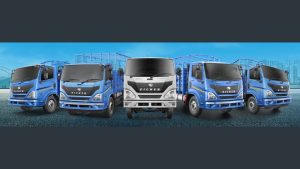
News: e-commerce firms turn their focus to EVs in order to enhance their overall delivery operations and business.
The last-mile delivery logistics and e-commerce companies in India are growing at an unimaginable pace thanks to their fleet of vehicles which plays a crucial role in the delivery of products and solutions from the warehouse to the doorstep of its customers. Numerous studies have brought to light that an efficient fleet of vehicles plays a major role in the development and growth of such firms.
Amazon, Flipkart, BigBasket and similar big e-commerce companies are among the ones who believe that an efficient fleet of vehicles helps improve their overall delivery operations. Therefore, these companies have decided to switch from internal combustion engine (ICE) vehicles to EVs.
There are various other reasons as to why these logistical companies are looking forward to switching from ICE vehicles to EVs. Large e-commerce firms have ESG (environmental, social, and governance) duties and going carbon-free is on their agenda for the same reason.
Also Read: VECV: Commercial Vehicle Sales To Touch FY19 Peak Next Fiscal
Major last-mile delivery firms have also set up a timeline wherein they will make the switch from ICE vehicles to EVs. Ecom Express, for example, the second largest e-commerce logistics service provider, has already announced its plans to replace half of its last-mile delivery fleet with EVs by 2025.
Other great brands like BigBasket, an e-commerce entity popular in India also plan to achieve a 90 per cent electric fleet by 2024. Renowned firm Amazon also plans to add 10,000 EVs to its delivery fleet in India while Flipkart plans to have over 25,000 EVs by 2030, however, it has also decided to invest in EV charging infrastructure as well.
Also Read: Volvo Trucks India Flag Off Commercial Trial Of LNG Truck
Sreeram Venkateswaran, senior vice president of sales and marketing at Mahindra Logistics mentioned to ET: “There is a significant amount of pull and push from large multinational corporations that really are driving the sustainability agenda. So those like Unilever, Nestle or even corporations like Godrej are pushy about this and they are keen to experiment and see whether they can sustain operations through the electric last mile.”
Furthermore, Vikash Mishra, founder and CEO of electric-mobility startup MoEVing, also stated that “E-commerce companies, for whom the last-mile cost is one of the highest, are seeing up to 30 per cent reduction in their cost per shipment.” In this regard, he added that “If that cost comes down by 30 per cent, then the overall cost of moving the goods can be reduced by 15 per cent.” Therefore, he thinks that electric vehicles can help in achieving lower costs for moving goods.
What do you think about e-commerce firms and their switch to EVs for enhancing delivery operations? Tell us your thoughts in the comment section below.
For more such articles and news, do join our 91Trucks WhatsApp Group. Also, please subscribe to our Youtube channel for video content on the latest from the world of trucks and buses. You can also connect with us on Facebook, Instagram, and Twitter for more about the automotive world!







